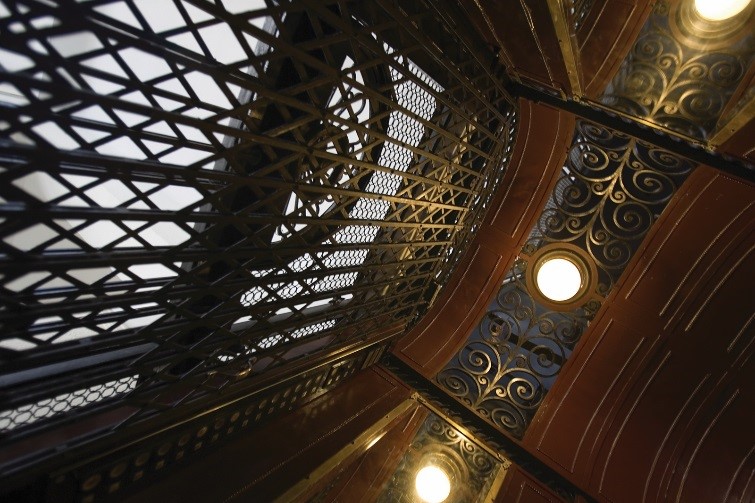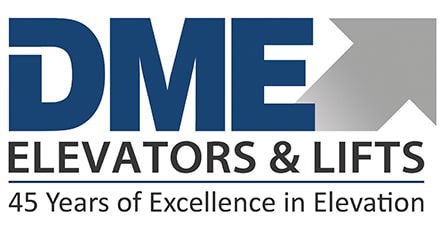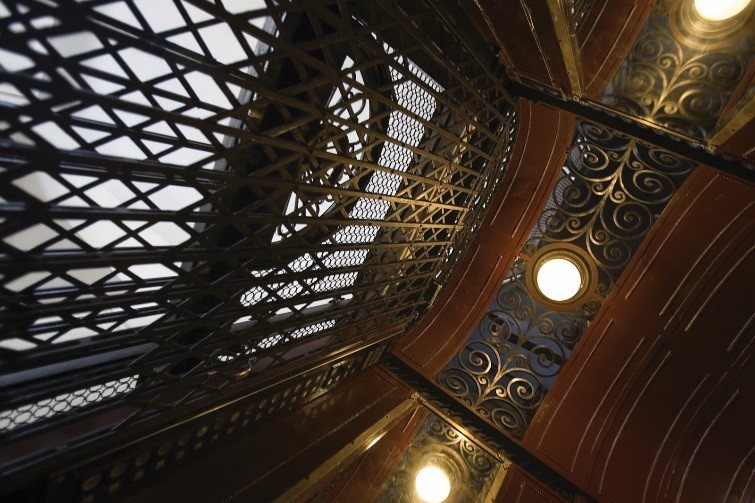
There’s a difference between a house and a home—and home should always be your place of comfort at the end of the day. According to a recent Harvard University study, less than 1% of homes are wheelchair accessible. That’s an alarming statistic, especially for those with disabilities or elderly homeowners choosing to age in place. Residential elevators are more than just a luxury and have gained immense popularity for those with mobility restrictions. This guide will take you through the myriad benefits, types, and costs associated with residential elevators.
The Benefits of Residential Elevators
Residential elevators have transitioned from being exclusive to commercial spaces and high-end properties to being a staple in modern accessible homes. Their widespread adoption is attributed to the ever-increasing emphasis on safety, accessibility, and the desire to age in the home you settled into years ago. Your home is your safe place, so why leave if you don’t have to?
As aging in place becomes commonplace, these elevators provide a seamless solution for elders moving between floors without the hassle or frustration of stairs.
Safety and Accessibility
One of the most significant advantages of residential elevators is their safety and accessibility. For the elderly and individuals with lifelong disabilities, navigating stairs can be a challenging and risky task.
Elevators eliminate this concern, offering a reliable mode of transportation that ensures everyone can navigate multi-level homes effortlessly.
Convenience and Comfort
Residential elevators redefine convenience by making daily activities easier. Carrying heavy items, such as groceries or laundry, up and down stairs can be physically taxing—and downright dangerous. Home elevators eliminate this struggle, providing a frustration-free means to transport bulky loads between floors.
Residents with mobility issues can effortlessly move from floor to floor, saving time and energy that would otherwise be risky or nearly impossible.
Property Value Enhancement
Beyond the given accessibility benefits, installing a residential elevator can significantly impact the value of your property. Prospective home buyers and current homeowners recognize the value of a home that comes equipped with modern amenities promoting convenience, accessibility, and luxury. And let’s face it, a home elevator exudes luxury.
Yes, a residential elevator adds a unique selling point, setting your property apart from others on the market. Plus, it will likely lead to higher resale values should you decide to sell.
Energy Efficiency and Modern Design
Modern residential elevators not only offer functional benefits but also contribute to the overall aesthetic of your home. Manufacturers have gone above and beyond with the latest design elements, making sure that whichever elevator you choose will seamlessly integrate with your interior décor.
Today, advancements in technology have also led to the development of energy-efficient models, reducing environmental impact and even energy costs. Ride in style with a new home elevator from DME Elevators & Lifts.
3 Types of Residential Elevators
Did you know that there is more than one type of elevator? It’s true. All residential elevators are made to move you from floor to floor, but not all elevators are made equal. If you’re in the market for a new elevator, you will likely choose between these options:
- Hydraulic
- Inline Gear
- Shaftless
Residential elevators come in various types, each catering to your specific preferences. The type of elevator you choose will depend on your home and mobility needs. We are here to help.
Let’s take a look at the options available:
1. Hydraulic Elevators
Hydraulic elevators utilize a hydraulic system to move the elevator car. They’re known for their smooth and quiet operation, making them a popular choice for homes. However, hydraulic elevators require space for a machine room. This is especially important to consider if you are adding an elevator to an existing home.
2. Inline Gear Elevators
These elevators are ideal for homes with limited space as they do not require a separate machine room. Inline gear elevators provide a smooth and reliable ride. Suitable for most living spaces they can serve up to 6 floors.
3. Shaftless Elevators
Shaftless elevators are a wonderful option for existing homes as they fit in most spaces with minimal construction. They do not require a pit, machine room, or separate elevator shaft. These elevators are however more limited in that they can only serve 2 floors.
How Much Does a Residential Elevator Cost?
Residential elevators are a big investment, and you’re likely wondering how much one will cost. This isn’t a simple answer as many factors contribute to the final price. To give you a ballpark idea, the average starting cost of a residential elevator is in the low $30,000s. This number is dependent on configuration, type of drive, finishes, and any upgrades you may want. Keep in mind you will also need to hire a general contractor to facilitate the layout and installation process. If you are in the process of building a home, be sure to ask your builder about making your home elevator-ready.
A home elevator is a valuable investment, one that could save you money in the long run. Elevators can be designed to fit in new and existing homes. The cost of moving to a new home is often expensive and emotional. A better solution people are finding is to instead age in the home that you love.
For a detailed estimate, please contact DME Elevators & Lifts. Our expert advisors will schedule a free in-home consultation with you to best determine your elevator requirements.
Our Residential Elevator Installation Process
If you’ve decided on a residential elevator, you can expect a meticulous installation process. Our installation process ensures you get the best possible outcome and longevity for your new residential elevator.
Preparation and Planning
Installing a residential elevator begins with careful planning. A professional consultation is the only way to assess your home’s layout, space availability, and elevator type that best suits your needs. DME Elevators & Lifts will work together with your general contractor to ensure this process from start to finish goes as smoothly as possible. We have decades of experience working with many of the local builders, general contractors, and architects in Illinois, Wisconsin & Indiana.
Choosing the Right Type
You may not know what kind of elevator is best for you. Consulting with experts from DME Elevators & Lifts will help you make an informed decision that aligns with your preferences and adheres to the constraints of your home.
Finishing Touches
Stopping by our Wisconsin or Illinois showroom allows you to see the stains, finishes, and fixtures in person. You can design your elevator to be the focal point of your home or blend into the current design. We offer a variety of upgrades to fit your needs and wants.
Why Choose Us for Residential Elevators?
DME Elevators & Lifts has proudly been serving the upper Midwest for more than 45 years. We’ve brought our customers to new heights through innovation, cutting-edge technology, and a five-star reputation. Get the most out of your home again, and live life without limits. Let’s pave your path to regaining independence. Give us a call or message us to schedule your free in-home assessment.
Visit a DME Elevators & Lifts Location Near You
We’ve been dedicated to making the Midwest mobile since 1977. Get a glimpse of your new residential elevator, or talk to an accessibility expert in person should you have any questions regarding the process. In our Illinois showroom, you can take a ride on different elevator models to see firsthand the options available to you.
Residential Elevator Installation, Repair & Maintenance From DME Elevators & Lifts
No area of your home should ever be off-limits. With a residential elevator, you can enjoy every floor of your multi-level home without worry. DME Elevators & Lifts offers professional residential elevator installation, repair, and maintenance services. With a focus on safety and customer satisfaction, we guarantee a safe and efficient installation process that will stand the test of time. We also offer general repair and maintenance services to keep your elevator running as smoothly as the day we installed it.
It’s time to regain your independence. Elevate the way you live with a residential elevator from DME Elevators & Lifts. Whether you call or fill out our form online, you can rest assured that an accessibility expert will take care of you. Schedule your free in-home consultation now and get on the track to freedom once again.









